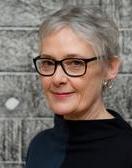On 2 September, I joined the White Allies Network. They are, as they say on their website:
A network of people that are committed to learn and do what it takes to be counted true allies against racism. It consists of white people who aspire to be true allies and people of color that are willing to journey with them towards that aim. The White Allies Network is open to all.
At a Zoom meeting the ten qualities of Aspiring White Allies were named. They included being Ignorant, in the sense of saying, ‘I don’t understand,’ or, ‘I don’t know, but I want to learn.’ And Not Wallowing in White Guilt, but using white guilt as a prompt to apologize and take action. They also included being Courageous: being open to challenge and being challenged. And in one of Adrian Lock’s blogs, October 2020, he wrote:
To quote Black activist Angela Y. Davis: I’m no longer accepting the things I cannot change, I am changing the things I cannot accept.
Adrian Lock, a member of the White Allies Network Steering Group who has ‘Overall responsibility for maintaining the website and organising meetings’, showed us three short films. The first was made by Clive Myrie, called Who owns History?; the second by David Olusoga called The Alt History You Don’t Learn at School, and the third by Afua Hirsch called Where Are You From? All three films show aspects of, or are introductions to, Black British peoples’ history. They were all deeply moving. They showed Black British people not having access to their history or ancestry; people whose last names are the names of their ancestors’ slave owners not their true ancestors; people whom White British people have prevented from truly belonging; people whose history has been denied.
The Legacy of British Slavery centre (at Harvard), an educational and research project that’s – among other things – documenting the lives of the enslaved to, ‘Recognise the humanity and individuality denied them by slavery,’ says it’s, ‘A history which we have all been shaped by, albeit unequally: understanding that is a responsibility for all of us so that we may do things differently.’

I should have known about Black British history. But in my white privilege, my white supremacy, I have ignored it. (There’s no other word for it, Black people have lived in this country since Roman times: see the Alt History.) But I have ignored Black peoples’ desire – and their struggle – to belong here in the UK, to be as integral to this country’s history as any White person. As a young Black woman in David Olusoga’s Alt History said:
You can’t go forward without understanding your past.
Through the White Allies Network I’ve begun to learn about Black peoples’ history. I have much more to learn. But Black and White histories shouldn’t be kept separate. As Mercy Muroki, news presenter, says towards the end of Who Owns History?
No one race, no one group owns history. I’d like for us to start thinking about history in a collective sense. We should think of history as a British history. And that … will encourage people to feel British, to feel that they have a stake in British society.
Clive Myrie says:
British colonialism defines who we all are. It’s left a family album of different peoples and races. It is our story.
It is.
But, in this article, Patrick Vernon comments on the March 2021 Commission on Race and Ethnic Disparities Report led by Tony Sewell. It concluded that there is no evidence that the UK is institutionally racist. Vernon writes that this is:
So out of step with our live experiences and our long history of campaigning for civil rights. [later on he writes]: What I found especially disturbing was the report’s efforts to play down the transatlantic slave trade and colonization which caused injustice to millions of our people over 400 years. We are told that the Maafa or the Maangamizi was ‘character building’ and we ‘need to move on’ from this crime against humanity.
Clearly, there is a some way to go before our histories are collectively, jointly embraced. But I commit myself, as an Aspiring White Ally, to educate myself about our joint histories, to refuse to deny the reality of Black British peoples’ live experiences and to become a true ally to Black British people, against racism.


